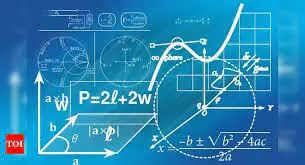Why the Study of Discrete Mathematics?

Introduction to Discrete Mathematics is a foundational course that introduces fundamental concepts and techniques in the field of discrete mathematics. Discrete mathematics deals with mathematical structures and objects that are fundamentally discrete or countable in nature, as opposed to continuous mathematics that focuses on real numbers and continuous quantities.
The course typically begins with an overview of basic logic and proof techniques. Students learn about propositional and predicate logic, logical connectives, truth tables, and methods of proof such as direct proofs, proof by contradiction, and mathematical induction. This foundation in logic and proof is crucial for developing rigorous mathematical reasoning skills.
The course then delves into sets, functions, and relations. Students study set theory, including operations on sets, set cardinality, and the properties of subsets and power sets. They learn about functions, including injections, surjections, and bijections, and explore different types of relations such as equivalence relations and partial order relations.
Combinatorics is another major topic covered in the course. Students learn about counting techniques, including permutations, combinations, and the binomial theorem. They study principles of counting, such as the multiplication principle and the inclusion-exclusion principle, which are essential for solving problems related to arranging objects or selecting subsets.
Graph theory is an important component of discrete mathematics, and the course introduces students to the basics of graph theory. They learn about graph terminology, different types of graphs, graph representation, and basic graph algorithms. Topics covered may include paths, cycles, trees, connectivity, planarity, and graph coloring.
Additionally, the course may touch upon other topics such as propositional and predicate calculus, formal languages and automata theory, and discrete probability.
Finally, an introduction to discrete mathematics provides students with a solid foundation in mathematical reasoning, logic, and problem-solving skills. It is a fundamental course for students pursuing degrees in computer science, mathematics, or related fields, as it forms the basis for many advanced topics in these disciplines.